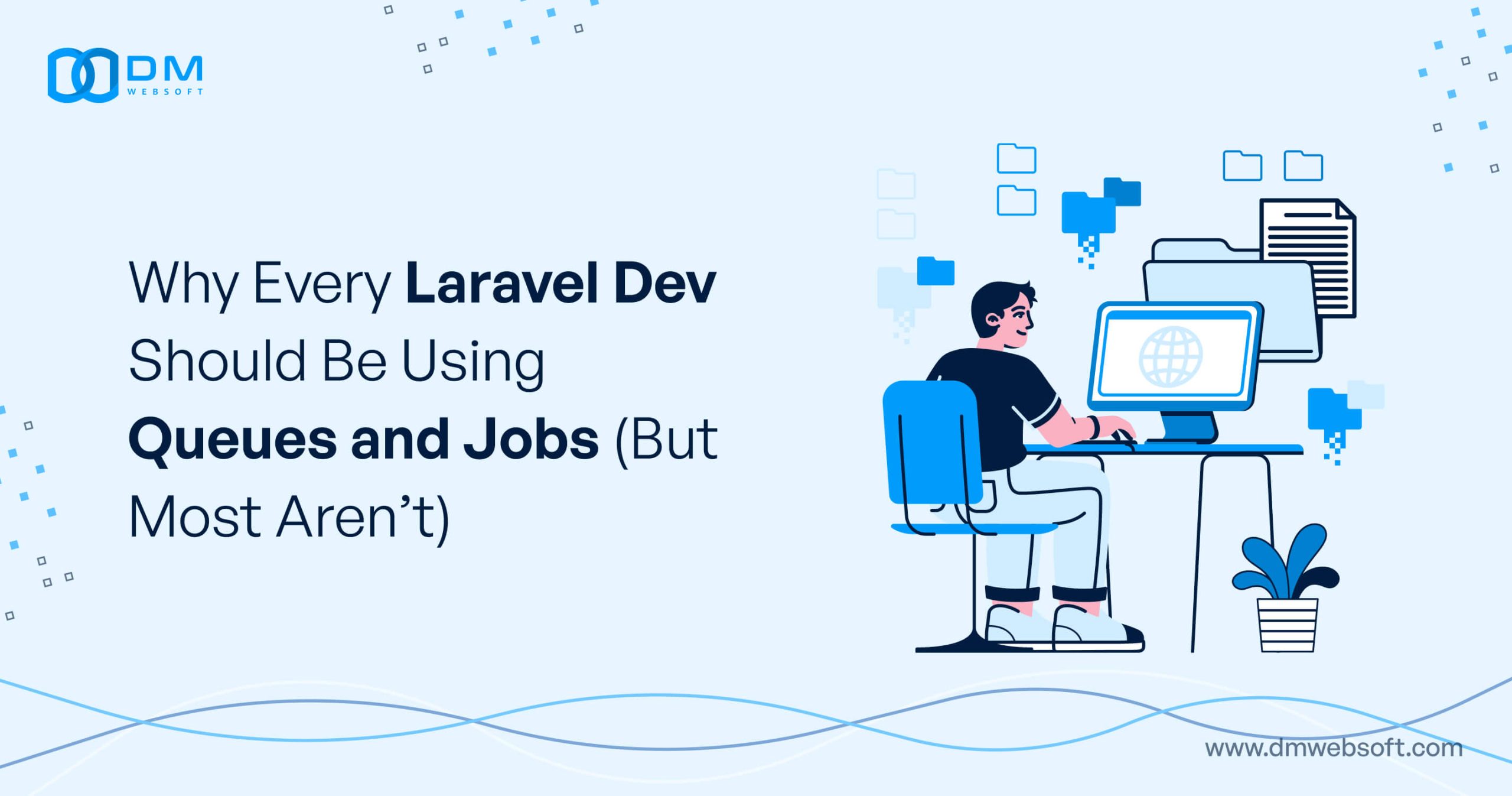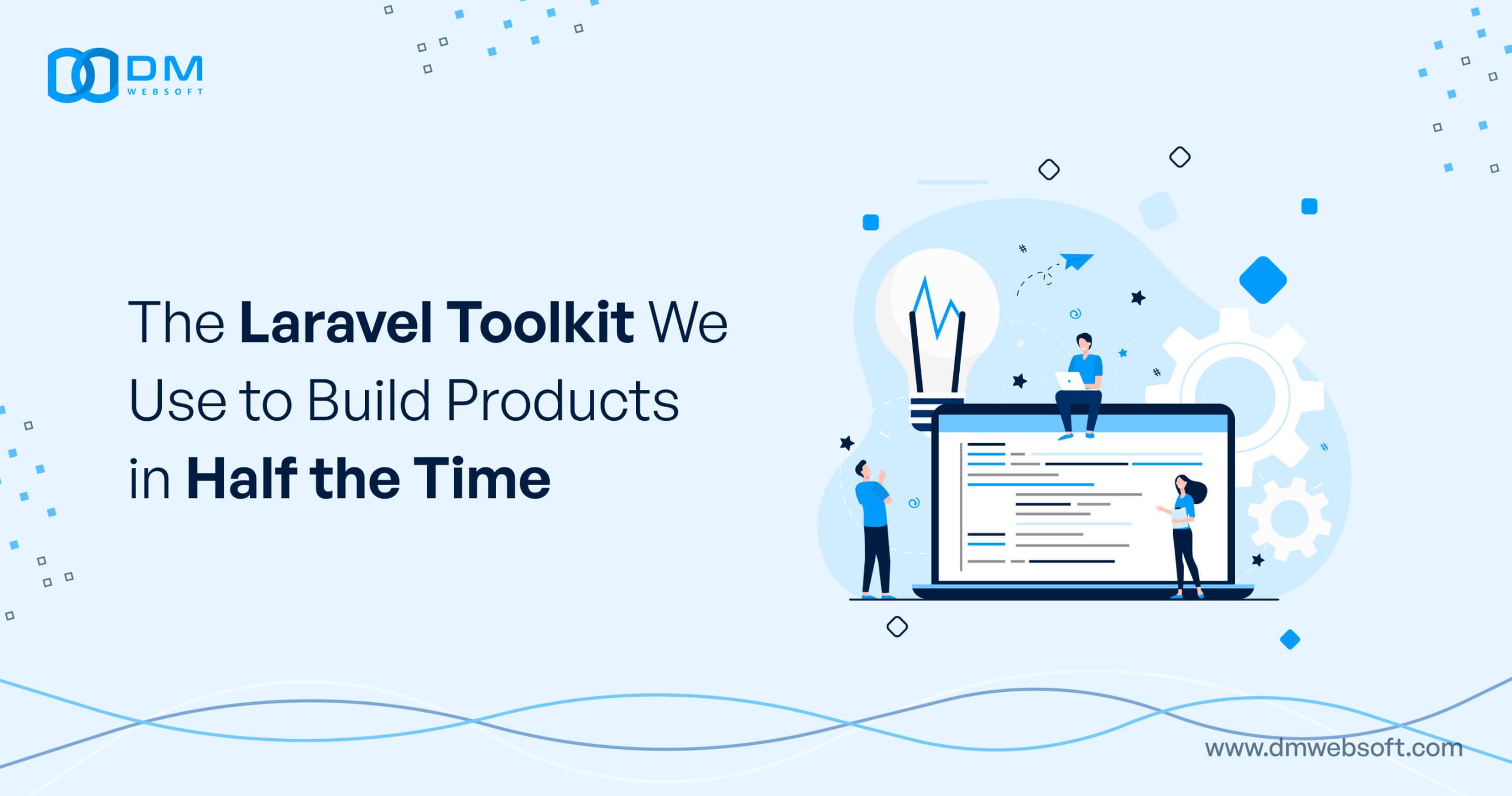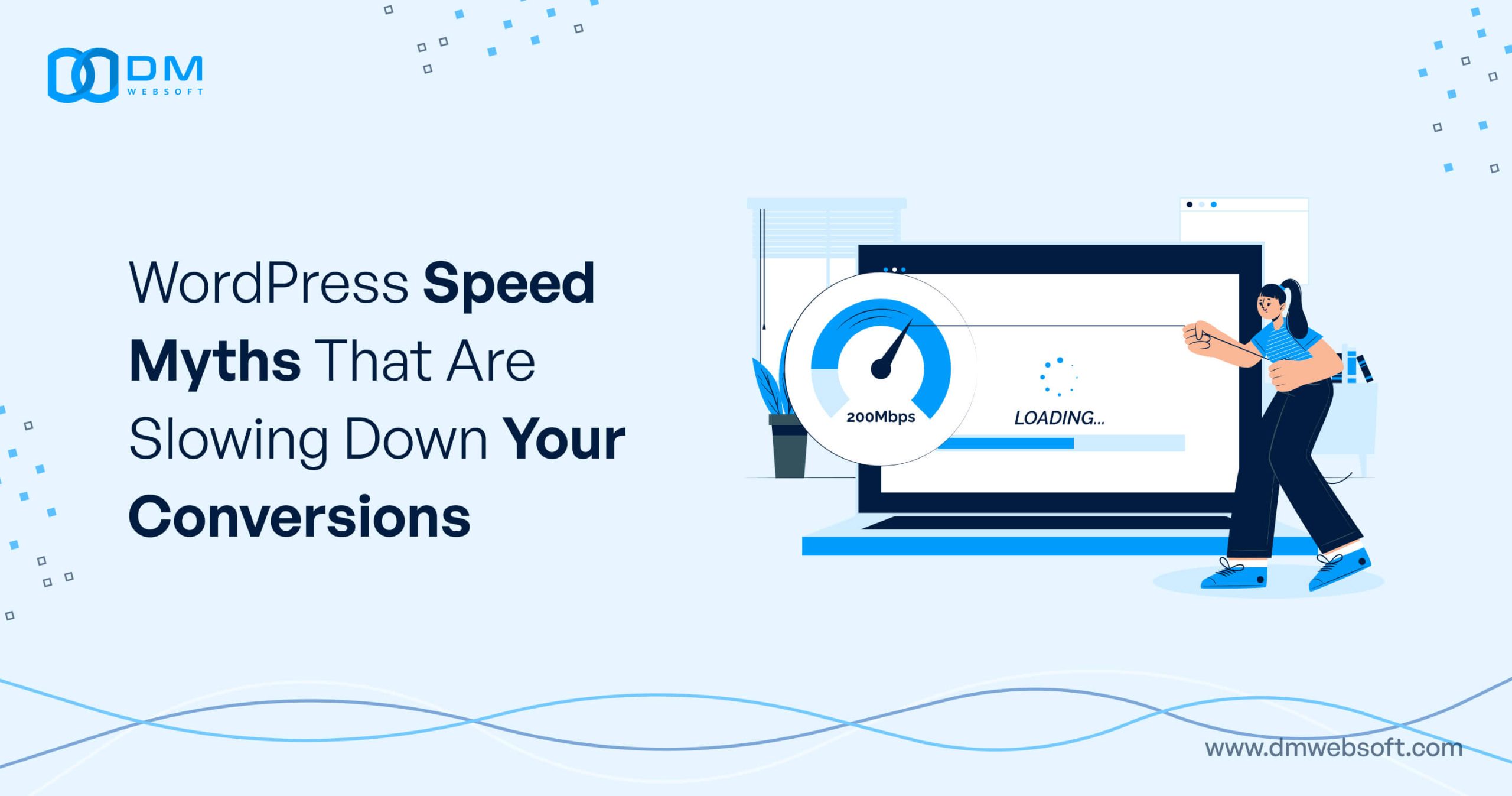DM WebSoft LLP exceeded our expectations! Their seasoned team of experts delivered a website that perfectly captures our brand essence. Their 15+ years of experience truly shine through in their exceptional web development skills.
The Future of APIs: Trends and Innovations to Watch in 2024

TABLE OF CONTENT
Introduction
Trends in API Development for 2024
Innovations in API Technology Shaping Various Industries
The Role of APIs in Digital Transformation
Opportunities and Challenges in API Integration and API Management
Using APIs to Improve Business Services and Operations
Market Research and Analysis
How DM WebSoft LLP Can Help
Get in Touch
Introduction

Most notably, APIs remain the backbone and driving force behind modern software development in a changing digital landscape. They assist in smooth communication between software from different systems, hence enabling businesses to come up with applications that are integrated and efficient. So, looking forward to 2024, what next for APIs and the exciting strides and trends in application development?
The future of APIs is definitely going to be affected by a number of key trends and innovations. API trends in 2024, innovations in APIs, development of APIs, and integration of APIs—the coming year reflects big changes in the ways through which the industry will leverage APIs. These will not only make the function and security of the APIs better but will also open up new possibilities for businesses to tap into and benefit from.
It is another innovative trend to create API as a product, treating APIs as standalone products with a value proposition of their own. It opens up an opportunity to monetize business, serving different needs of the customer by employing different tiers of access and different functionality. This is the space where API management and security will remain key; more tools to provide security against cyber threats will be developed.
Another key highlight is digital transformation with APIs, as companies look to innovate and streamline through the technology of APIs. This is about merging APIs’ technology into other developing technologies, such as artificial intelligence and the Internet of Things, to give rise to smarter, more responsive applications.
We at DM WebSoft LLP clearly understand the pivotal role which APIs play in the digital economy of today. Our expertise in the design, development, and integration of APIs places us in an enviable position for creating state-of-the-art solutions that keep companies at the forefront.
Be it the addition of enhancements to the existing system or the development of a new one from scratch, our team is fully dedicated and committed to providing robust, secure, and scalable APIs that will drive growth and enhance efficiency.
Trends in API Development for 2024

As we head deeper into 2024, we witness several transformational trends in the API development landscape that are going on to redefine the way businesses build and deploy APIs. The trends are not just marginal increments but paradigm changes that are about to define the future of software development.
One of the significant new trends now in the business world is the API-as-a-product. In the traditional view, the APIs belong to an internal tool for use in firm software infrastructures. However, the API-as-a-product concept has turned into a solution treating the APIs as products on their own. It means the development of APIs that deliver functionalities or data sets which in turn can be monetized for third-party developers or clients. This trend is what calls for developing much more friendly and robust APIs, well documented and supported.
Another very important trend is in API management itself. As the count of exposed APIs increases, efficient management has become a prerequisite. Advanced API management tools are developed to assist in businesses’ monitoring of usage, controlling access, and security on the APIs. These tools become a staple for automation toward maintaining the health and performance of APIs.
Another aspect that is evolving at a fast pace is the integration of APIs. Today, seamless connectivity between various systems and applications plays a very important role, which finally puts API integration on the fundamental base. Modern API integration approaches are looking for ways of creating more standardized and effective interfacing methods for dispersed systems. This involves using AI/ML to make API calls more optimized and reduce latency for better application performance overall.
Security heads the list with API development. In a growing cyber-threat age, securing the APIs becomes more important with each passing day. That is why data sensitivity and trust are maintained while infusing tightened, advanced security measures like authentication, authorization, and real-time threat detection with sensitive data protection.
At DM WebSoft LLP, we keep in step with these trends to provide our clients the best possible API solutions. The team is competent in developing the API products for operationality, safety, and scalability. We use new tools for API management, which will assist in making all our APIs adhere to the performance and security standards and be safe against malware. This work with API allows one to create smooth integrations between different systems, the integrator lets businesses flow in sync with the best operating methods.
Innovations in API Technology Shaping Various Industries

API technology is moving at a very high evolution rate, therefore, redefining industries across the globe. Whether in healthcare or finance, manufacturing or retail, the innovations in APIs are making huge differences and making organizations more effective throughout the process of functioning. All these innovations are set to further touch off continued revolutions for the way industries leverage digital connectivity in 2024.
Among other developments, some of the most transformative innovations will likely be caused by a convergence of AI and machine learning with APIs. They support an enhancement of the APIs’ capabilities to make systems smarter and more adaptive. For example, in healthcare, APIs powered by AI can be used to do real-time analyses on patient data, from which suggestions on personalized treatments are made.
Likewise, in finance, machine learning APIs can reveal cases of fraudulent transactions in a more accurate and faster way. In essence, this seamless infusion of AI within APIs is the building block for intelligent and responsive applications across many other sectors.
Another key innovation in API design is the use of GraphQL rather than REST APIs. It is a query language in which clients fetch exactly the data they need, and this way, it reduces the amount of data traffic over the channel and speeds up the application’s performance. Mostly, this is a huge benefit, especially inside businesses like retail and e-commerce, where efficient retrieval of data is able to improve user experience in making services faster and better personalized.
The emergence of low-code and even no-code platforms is truly disruptive to traditional API development. Allowing the person with the least programming skills to create and deploy APIs through a visual interface raises the level of API development exponentially and, therefore, drives more innovation and speeds up the deployment of new services. Companies are now able to develop and integrate APIs more rapidly, enabling them to respond more quickly to prevailing market demands.
Now, with the rise of the IoT and edge computing, the nature of the APIs in use changes a bit in nature. APIs within the manufacturing industry connect and manage IoT devices that monitor and control the production processes in real-time. This drives the latencies based on the network down, enhancing the time performance of architectures, and with this combination, it really suits applications that require instant processing.
Security to APIs has been a key focus as the number of connected devices and systems increases. High levels of security assure that in case such sensitive information is saved, the control measures will be able to detect any threats in real time and automatically respond in order to ensure there is no breach. True, this is much beneficial in domains such as finance and healthcare where very sensitive information is involved.
DM WebSoft LLP specializes in integrating these cutting-edge API technologies to help businesses across several industries stay ahead of their game. Our experience in integrating AI, GraphQL, and low-code platforms ensures that our clients receive the latest innovations for optimizing their operations. We also take security measures inside the APIs regarding the defense mechanisms for the safeguarding of data and systems.
The Role of APIs in Digital Transformation

Digital Transformation is no longer a buzzword but in fact a critical strategy for those businesses wishing to remain relevant in today’s fast-paced market. And at the very heart of that transformation lie APIs. APIs are what make organizations so seamlessly integrated with applications across all systems and platforms. The role of APIs in digital transformation is expected to expand by 2024, which will drive innovations and efficiencies in various industries.
One of the most important parts of digital transformation through the use of APIs relates to the integration of various business systems in the ecosystem. APIs provide an easy flow of data between different types of software applications, from customer relationship management to enterprise resource planning software. This, in turn, assures continued access to data between the organizational levels, hence improving decision-making and operational efficiencies.
APIs are at the forefront of enabling cloud services. Cloud-based applications are finding their way into general use for business requirements, and more and more, an API is being worked out that connects an on-prem system with those clouds. This type of hybrid solution provides a business with the opportunity to take advantage of the cloud’s scalability and flexibility while remaining in total control of the data and the governing policies and processes behind those very processes. For example, a company can integrate the on-premises inventory system of a company into a cloud-based e-commerce system to ensure the most current inventory for a more graceful customer experience.
Besides, another good point for applying APIs in digital transformation is automated workflows. They would automate such non-value activities as entering and processing data, which causes risks of errors, and free up more time for employees to act with activities of strategic value. For example, an API can be used for updating a customer’s details in the CRM system every time a new order is placed in a more automated manner, such that the sales and marketing teams are always working with updated customer data.
APIs boost the integration of new technologies, amongst them artificial intelligence and the Internet of Things. AI-powered APIs allow the analysis of huge volumes of data to derive insights and predictions, while IoT APIs interconnect different devices to communicate with one another and work together. This becomes all the more important in applications like smart cities, where different systems need to work in harmony to optimize resources and make the life quality better for the populace.
We, at DM WebSoft LLP, understand how APIs deliver the power to first initiate digital transformation. Our API integration and development expertise will enable us to bring up solutions that can connect heterogeneous systems and platforms to empower businesses to meet intents for digital transformation. In return, we use the latest technologies to make sure our APIs are robust, secure, and scalable, giving our clients the tools they need to stay ahead in a dynamic market.
Opportunities and Challenges in API Integration and API Management

In addition, with the rise in adoption, the challenges and opportunities presented by the integration and management of APIs make themselves known to businesses. Proper management of these features is by far leading the use of the API technologies to realize the full potential of business development and innovation. Let’s look into it in more detail—those challenges and opportunities of the space by 2024.
API Integration Challenges
The greatest challenge when integrating the APIs is making seamless connectivity between heterogeneous systems. Businesses commonly use a combination of legacy and modern applications that are hard to integrate with APIs. This fact goes with data format incompatibility, communication protocols, and in most situations, the method of authentication applied. It literally goes to stipulate very robust API design with comprehensive testing to make sure that compatibility and performance are achieved.
Another major concern is API security. The more implementations of APIs, the more guarantees of potential cyber threats and data breaches. Strong authentication and authorization mechanisms, along with data in-transit encryption, should be provided for the implemented API to be secure, coupled with the continuous monitoring of vulnerabilities. The biggest challenge is to be secure without impeding access and ease of use.
Another major issue to consider is API performance and scalability management. The size of businesses is increasing, and therefore their demand for services is growing. APIs have to handle more loads and be stable in performance. All this has to be planned rightly, and advanced tools for the API management need to be in place to watch and modify the behavior proactively and in real time.
API Integration Opportunities
Despite all these difficulties, a business can accrue great benefits from the integration of APIs. Such would be the opportunity to create more connected, efficient business processes. When systems are integrated with each other using APIs, their workflows are automated, human intervention is kept to a minimum, and data accuracy is improved. This can translate into better operational efficiency and savings.
Another opportunity lies within the use of API analytics: In fact, the analytics of the data pouring from APIs can give businesses insights on consumption patterns, performance metrics, and even possible chokepoints in the value chain. Such insights can further guide decision-making regarding better optimization of API strategies for improved results.
In that context, the management tools for the APIs are continuously evolving with new advanced features to overlay the complexities of the infrastructures of APIs. Among the features are automated documentation, usage monitoring, access control, and enforcement of security.
Another significant opportunity was realized at the turn of events: the emergence of low-code and no-code platforms that enable businesses to quickly develop and integrate APIs without deep coding expertise. The democratization of building APIs lets non-technical users take part in the process of creating digital solutions, fostering innovation and agility. The development team of DM WebSoft LLP understands the complexities of API management and API integration. We’re ready to tackle such challenges head-on with our solutions, crafted to give you the best in API performance, security, and scalability. We use advanced API management tools with best practices to ensure our clients fully harness the opportunity they present.
Using APIs to Improve Business Services and Operations
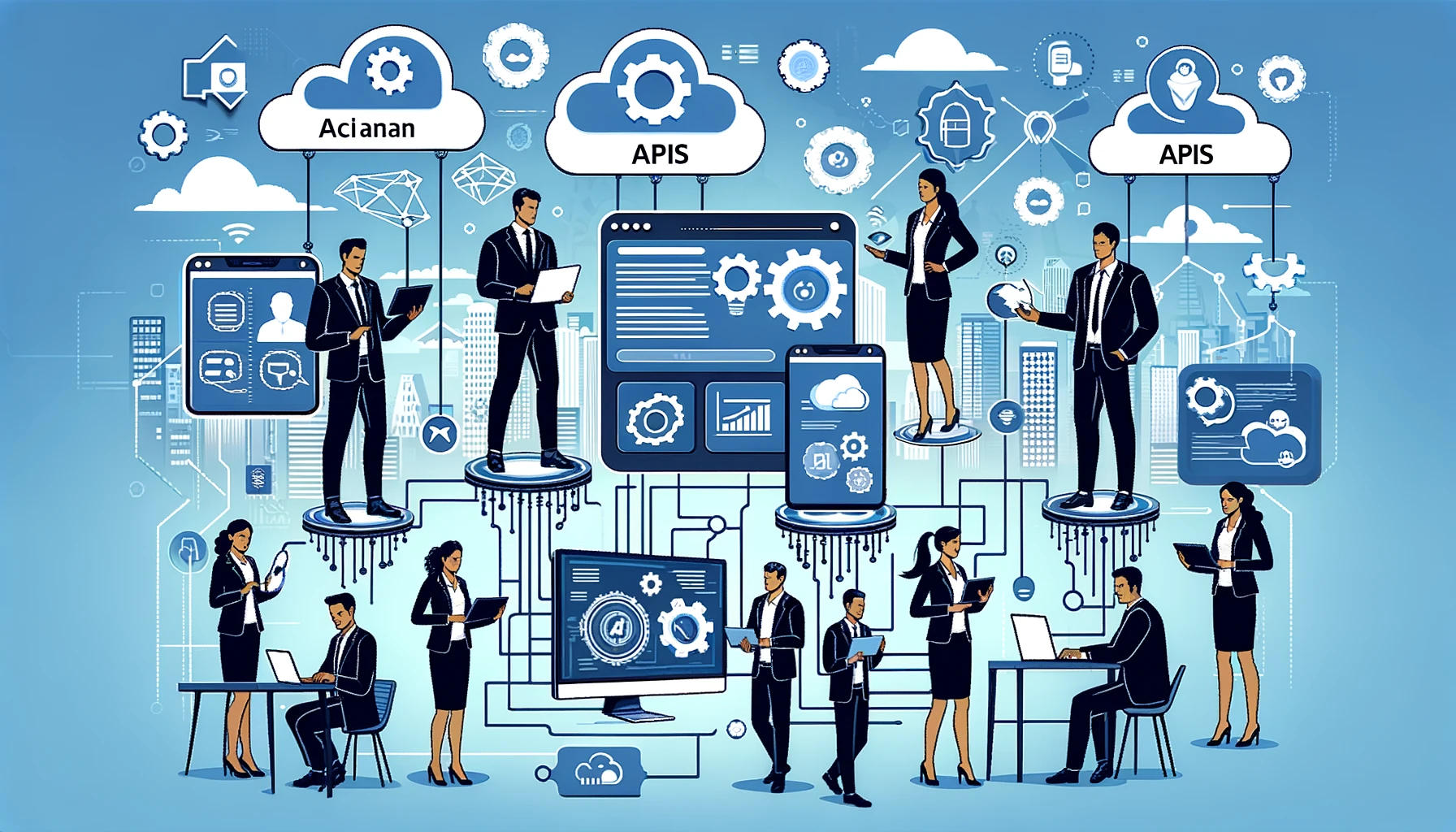
Business firms, in this competitive world, continuously wish to search for ways and means to take their service and operations to the next level. APIs help in creating more fluid and efficient workflows, better customer experience, and innovation for the company. Companies have to strategically exploit API technology to open opportunities for growth and stay ahead in a competitive environment.
The nice thing about incorporating APIs, however, is the chance to automate and streamline all the processes in your business. They help software systems communicate with and cooperate with one another, drastically reducing the need for manual data entry and other repetitive exercises. For example, details of a customer in a CRM system shall update automatically the moment a new order is placed, so that sales and marketing work gets updated data. This ensures not only accuracy but also relieves employees from the routine monotony to better attend their strategic obligations.
APIs also allow for more insightful data analytics and decision-making. Through the fact that APIs are integrated into such platforms, businesses can now collect and analyze real-time data obtained from various sources to derive important insights into customer behavior, market trends, and operational performance, which can be translated into better decisions. For example, a retail business can monitor stock levels, gather sales data, and even reach out to consumer feedback by the use of APIs that help manage and increase customer satisfaction.
The other key benefit of API technology is that it improves customer experiences. They are able to link the different customer touchpoints—for instance, websites, mobile apps, and social media platforms—where an experience is coherent and consistent. For example, a company in the financial services industry that utilizes APIs can ensure a seamless account management ability across the multiple channels through which its customers access their accounts, transact, or even raise enquiries and service requests. Ease is, therefore, improved for customers, which in effect increases brand loyalty.
APIs also empower businesses to bring innovations into new services much faster. The low-code and no-code platforms make it possible for firms to design and deploy entirely new APIs with no or minimal coding competencies. It does speed up the process rapidly, giving businesses the potential to deliver and release at a much faster rate than their peers. For example, a health caregiver can design an API, coupled with low code technology, into its electronic health record with telehealth services integrated in that. And that helps patients to seek much more convenient, much easier, and much smoother medical care.
At DM WebSoft LLP, we focus on using APIs to help businesses realize the full potential of what their services and operations can be. Experience and knowledge in integration, development, and management of APIs are applied to allow our clients to link their systems with flexibility, optimize workflows, and create the best customer experience. We develop API-enabled solutions using state-of-the-art technologies that are secure, scalable, and, most importantly, aptly suited to the unique needs of each business.
With the strategic use of APIs, businesses can dramatically modernize operations, deliver superior service, and maintain a competitive edge in the market.
Market Research and Analysis

Understanding the current market landscape and anticipating future trends is crucial for businesses aiming to maintain a competitive edge. API market research provides valuable insights into industry developments, usage patterns, and technological advancements. In this section, we will explore recent research findings and their implications for businesses leveraging API technology in 2024.
Recent Developments in API Market Research
The rise of the API is one of the fastest-growing demands in any industry: from better system interoperability to digital transformation, recent study findings project high growth in the API management market, going at a CAGR of over 20% globally between the years 2021 and 2027. This growth will be fostered by the increasing adoption of APIs in sectors such as healthcare, finance, retail, and telecommunications.
In many market reports, API security remains headlined as a critical area within the vast domain of security. The rise in API-related cyber-attacks has made organizations invest huge amounts in these security measures. Research shows the growth expected in API security solutions to be a good amount, as businesses are trying to maintain their data safe and not lose the trust of their customers.
The other area of focus is API analytics. It is increasingly important for the businesses to gain the performance analysis of the usage data in respect of APIs to capitalize on and further find new avenues for even betterment from there. API analytics tools help businesses draw insights into various areas, such as traffic patterns, error rates, and user behavior, for making informed decisions about improving API strategies.
Another significant trend in the API market is the proliferation of low-code and no-code platforms. It set the landscape for democratizing the process of API development among all people, since even those users who have a lack of coding experience could structure and launch APIs. The concept of increased innovation in APIs arose because more and more businesses could develop and integrate new services quickly.
Market Forecasts and Predictions
The market for APIs is about to show phenomenal growth in the future, due to a confluence of factors:
- More Involvement of AI and Machine Learning: API technology would, in the near future, receive more involvement with AI and machine learning, making them intelligent and adaptive. Such APIs would help companies automate irksome, intricate processes and improve their decisions with personalization.
- Growth of IoT and Edge Computing: IoT is one of the most growing technologies that uses APIs for device-to-data center connectivity and real-time information processing to enable highly responsive and effective systems.
- Monetization of APIs: The exact moment businesses realize the value in their APIs, they run towards a way of monetizing them. API-as-a-product will be more common, and companies will monetize their APIs through tiered access and subscription plans.
- Increased API Security Measures: The necessity for advanced API security solutions is going to enhance as the scope of cyber threats burgeons globally. Enterprises will soon invest in complex and large security frameworks that will protect their APIs and maintain the integrity of their data.
How DM WebSoft LLP Can Help
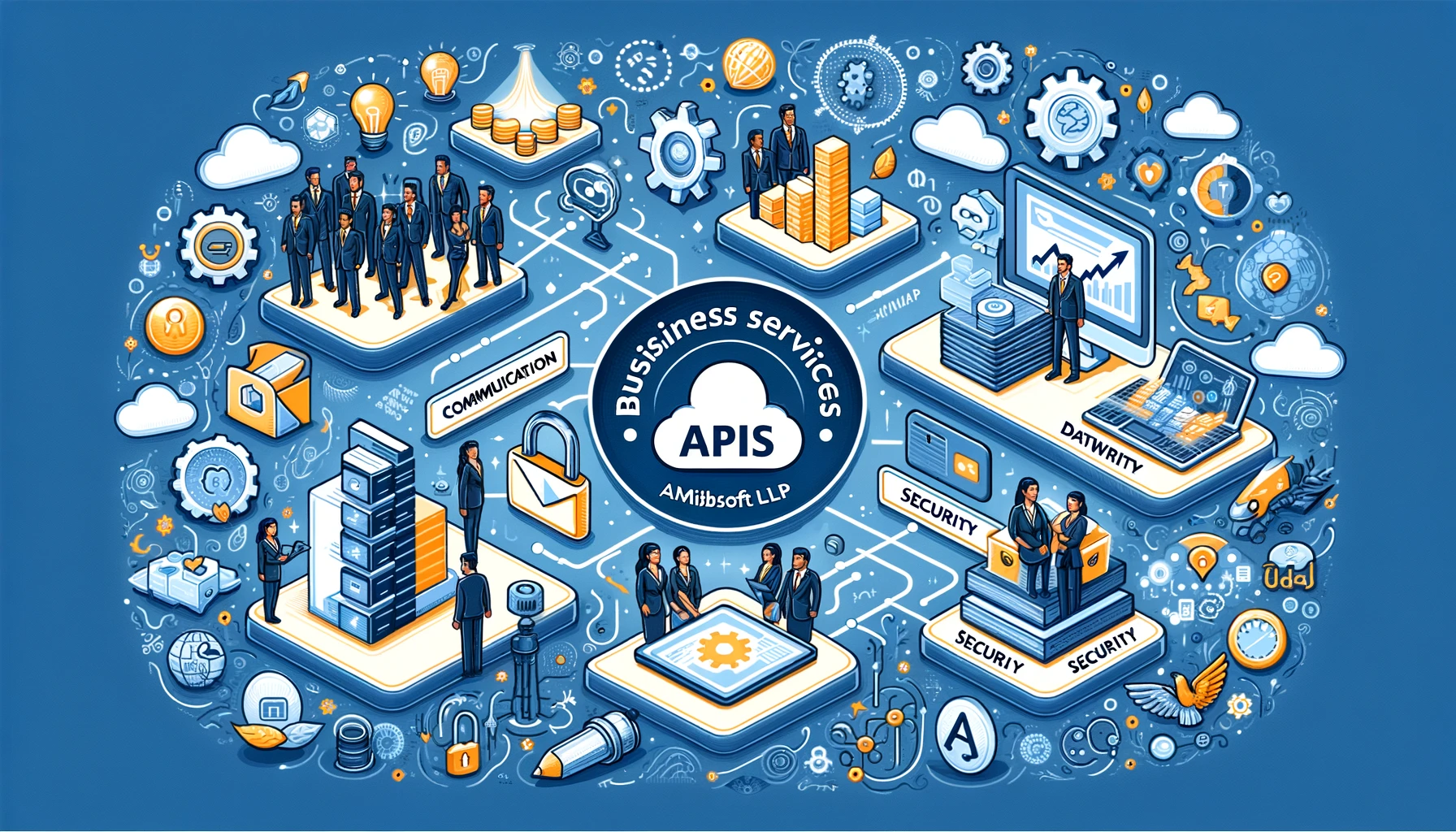
At DM WebSoft LLP, we always have an eye on the latest market trends and research since we deliver our clients very future-forward solutions in APIs. Our core competence in API analytics, security, and integration ensures our clients can milk the full potential of API technology.
We help businesses navigate the complexities of the API landscape, from developing robust APIs to implementing effective security measures. Understanding what happens in the marketplace and leveraging advanced API technologies can put any business into a domain with unbounded opportunities in a fast-moving, ever-changing digital landscape.
Businesses strive to get ahead in the race of competition. Modern solutions built over APIs offer easy integrations, data sharing, and other such features to help automate platforms and services. DM WebSoft LLP specializes in building breakthrough API-based solutions that assist a business in achieving its goals for digital transformation.
How DM WebSoft LLP Will Help You Make and Implement APIs
APIs are to be created and integrated very devastatingly. At DM WebSoft LLP, we have highly skilled personnel whose expertise lies in crafting firm and good APIs designed with a wide variety of business needs. Be it you need a fresh API developed from scratch or optimizing the one that exists, we for sure can do so. And we assure the integration of APIs that we have designed be smooth and merge your systems to work together properly. We understand that nowadays it is quite hard to integrate the legacy systems with contemporary applications. We guarantee compatibility and high performance through our advanced techniques for integration, ensuring smooth flow of data and communication between several software solutions.
End-to-End Solutions in API Management
Effective API management is very important. DM WebSoft LLP provides a full scope of services in API management by automating many routine tasks such as usage monitoring, access controlling, and security permitting, allowing your team to engage themselves in strategic tasks. Our solutions bring advanced authentication and authorization protocols combined with data encryptions and real-time threat detection in order to secure sensitive yet critical data while maintaining customer trust.
How to Harness the Power of API Analytics in Deriving Business Intelligence
API analytics impart insights on emerging trends and areas ripe for improvements. DM WebSoft has been equipped with state-of-the-art analytic tools to provide monitoring of API performance and collection of actionable data. This ensures that our API strategy maximizes the best performance to deliver great user experiences.
Partner With DM WebSoft LLP
Here at DM WebSoft LLP, we believe in empowering your business through API solutions that bring innovation and efficiency. Our end-to-end service offerings make sure that your APIs are fully functional, safe, easy to scale, and optimized for success.
We help our clients navigate through the complexities of API development, integration, and management to provide solutions, not just to their problems, but assist in their digital transformation journey.
In 2024, key API trends include API-as-a-product, advanced API management, enhanced API security, the rise of low-code and no-code platforms, and the integration of AI and IoT with APIs.
APIs enable seamless integration between systems, automate workflows, enhance data analytics, and improve customer experiences, making them essential for digital transformation.
Challenges in API integration include system incompatibilities, security concerns, and performance management. These can be overcome with robust API design, comprehensive testing, advanced security measures, and effective API management tools.
Businesses can use APIs to automate processes, improve data analytics, enhance customer experiences, and rapidly develop new services using low-code and no-code platforms.
Get Started Now !
What’s the Process ?
Request a Call
Consultation Meeting
Crafting a Tailored Proposal
Get Started Now !
Real Stories, Real Results. Discover What Our Clients Say

Working with DM WebSoft LLP was a game-changer for our business. Their technical prowess and innovative solutions transformed our online presence. A highly recommended web development agency with a stellar track record.

We are thrilled with the results DM WebSoft LLP delivered. Their deep understanding of web development coupled with years of expertise ensured a seamless and visually stunning website. True professionals!

In a digital age where first impressions matter, DM WebSoft LLP crafted a website that speaks volumes. The team’s attention to detail and commitment to quality set them apart. Thank you for making our vision a reality.

DM WebSoft LLP’s team demonstrated unparalleled expertise. Their ability to navigate complex technical challenges with ease is truly commendable. Choosing them for our web development needs was the best decision.

Exceptional service, unmatched skills! DM WebSoft LLP stands out as a leading web development agency. Their collaborative approach and commitment to excellence make them our go-to partner for all things web-related.

DM WebSoft LLP turned our ideas into a digital masterpiece. The seamless communication and timely delivery of our project showcased their professionalism. Highly impressed with the level of creativity and skill.

Our experience with DM WebSoft LLP was nothing short of amazing. From concept to execution, their team provided top-notch web development services. A reliable partner for businesses looking to elevate their online presence.

DM WebSoft LLP’s team of tech experts is second to none. Their wealth of experience reflects in the quality of their work. Our website not only meets but exceeds industry standards, thanks to their dedication.

Choosing DM WebSoft LLP was the best investment for our web development needs. Their team’s proficiency, coupled with a customer-centric approach, made the entire process smooth and enjoyable. A pleasure to work with!



